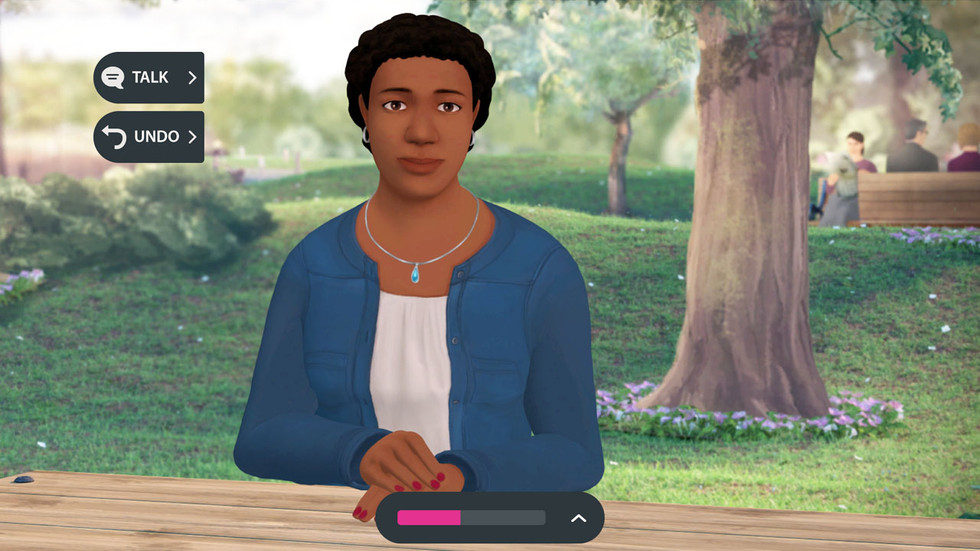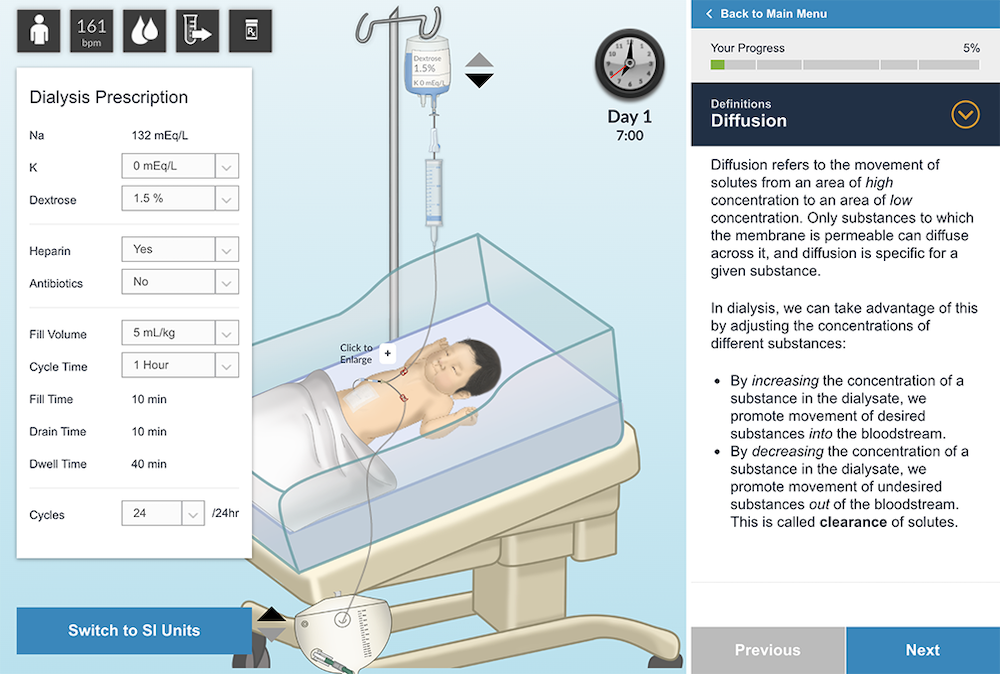Have you ever played an RPG (Role Playing Game for the uninitiated), such as Diablo, Dungeons and Dragons, or World of Warcraft? Building you stats undergoing epic quests that unfold through character conversation to better understand the world around you — and how to best train to overcome its challenges? What if we could apply that same “adventure” to Healthcare Simulation, through the use of virtual patient conversations to “build” the stats of “cognitive understanding” and “communication based team work and assessment”? Thanks to the recent advances in Serious Gaming technology, now we can! PCMag recently took a look at one such RPG to see how it is affecting medical simulation.
Role-playing games (RPGs) and simulations (SIMs) are some of the most engaging types of games because they place players in various immersive situations. Participants can succeed or fail at their quests depending on how they respond to situations and challenges. They can also learn from their mistakes and increase their experience the more they play. This type of game logic is now being integrated with various technologies to benefit healthcare providers and patients by helping them better engage in potentially life-saving conversations.
Various medical simulation companies are designing scenarios and virtual human training solutions that hone conversational skills to improve patient interactions. Such scenarios help patients navigate possible treatments by conversing with an avatar called a “virtual human.”
Similar to other online corporate training services, scenarios unfold in on-screen role-play conversations with virtual humans, the avatars that serve as practice patients. Users can assume various roles ranging from teachers who are talking to students showing signs of psychological distress or healthcare providers discussing delicate medical issues with patients. While the advantages of simulation-based training are evident for healthcare, it’s easy to see how they could also be applied across other business disciplines, such as customer relationship management (CRM), help desk solutions, and human resources (HR).
Fully articulated and emotionally responsive virtual human speaks to the real-life experience of a survivor. Virtual Patients tailor their messages to each user’s knowledge level, concerns, and overall motivation. Designed to respond to users’ queries, navigating a conversation with such avatars is similar to many turn-based role-playing games, except in this case, the focus is on informing patients on the most viable treatment options for Triple Negative Breast Cancer (TNBC) diagnosis.
Virtual avatars, like those from Kognito, are ideal for patients who want to explore treatment options on their own time or without the pressure of discussing their diagnosis with a doctor or healthcare provider. For healthcare professionals who do need to engage patients, these simulation and role-playing exercises can improve their skills and ensure they are interacting with patients in a knowledgeable and empathic manner.
Read the Full RPG for Medical Simulation Article on PCMag Here!
Additional Reading: “A systematic review of serious games in medical education: quality of evidence and pedagogical strategy” (Gorbanev et al): The literature shows an optimistic landscape for the effectiveness of games in medical education. Nevertheless, games are not considered mainstream material in medical teaching. Two research questions that arise are the following: What pedagogical strategies do developers use when creating games for medical education? And what is the quality of the evidence on the effectiveness of games?
A systematic review was made by a multi-disciplinary team of researchers following the Cochrane Collaboration Guidelines. We included peer-reviewed journal articles which described or assessed the use of serious games or gamified apps in medical education. We used the Medical Education Research Study Quality Instrument (MERSQI) to assess the quality of evidence in the use of games. We also evaluated the pedagogical perspectives of such articles.
Even though game developers claim that games are useful pedagogical tools, the evidence on their effectiveness is moderate, as assessed by the MERSQI score. Behaviourism and cognitivism continue to be the predominant pedagogical strategies, and games are complementary devices that do not replace traditional medical teaching tools. Medical educators prefer simulations and quizzes focused on knowledge retention and skill development through repetition and do not demand the use of sophisticated games in their classrooms. Moreover, public access to medical games is limited.
Even though game developers claim that games are useful pedagogical tools, the evidence on their effectiveness is moderate, as assessed by the MERSQI score. Behaviourism and cognitivism continue to be the predominant pedagogical strategies, and games are complementary devices that do not replace traditional medical teaching tools. Medical educators prefer simulations and quizzes focused on knowledge retention and skill development through repetition and do not demand the use of sophisticated games in their classrooms. Moreover, public access to medical games is limited.









